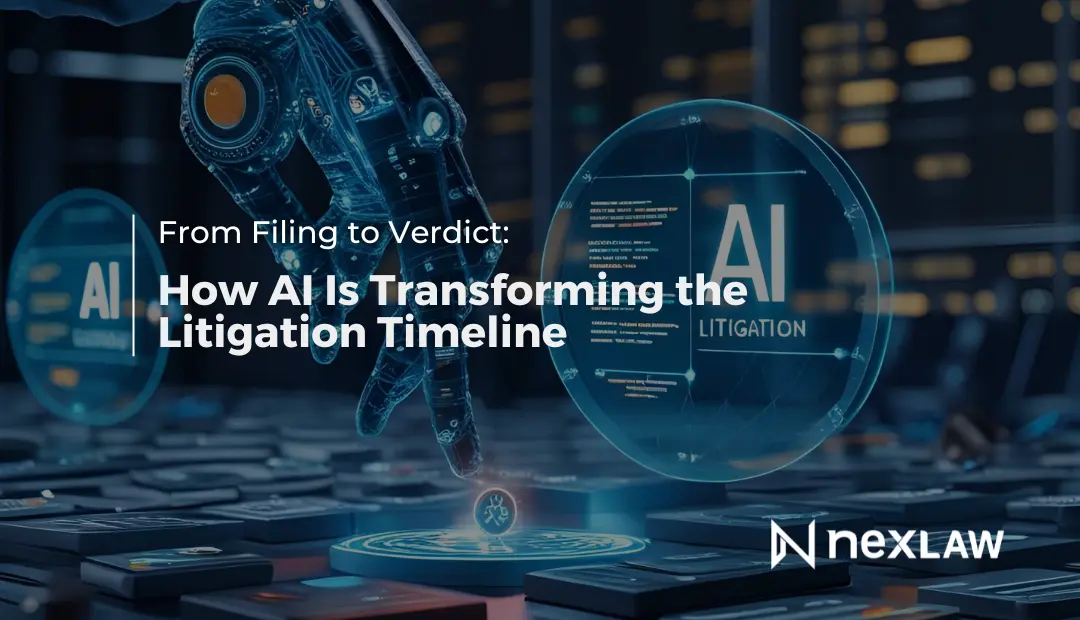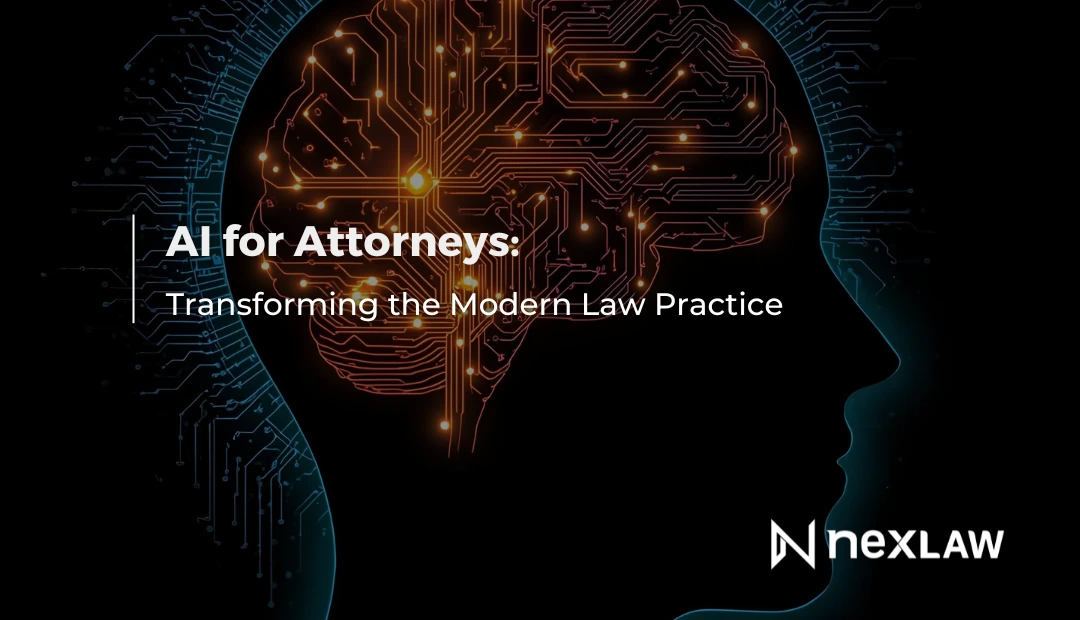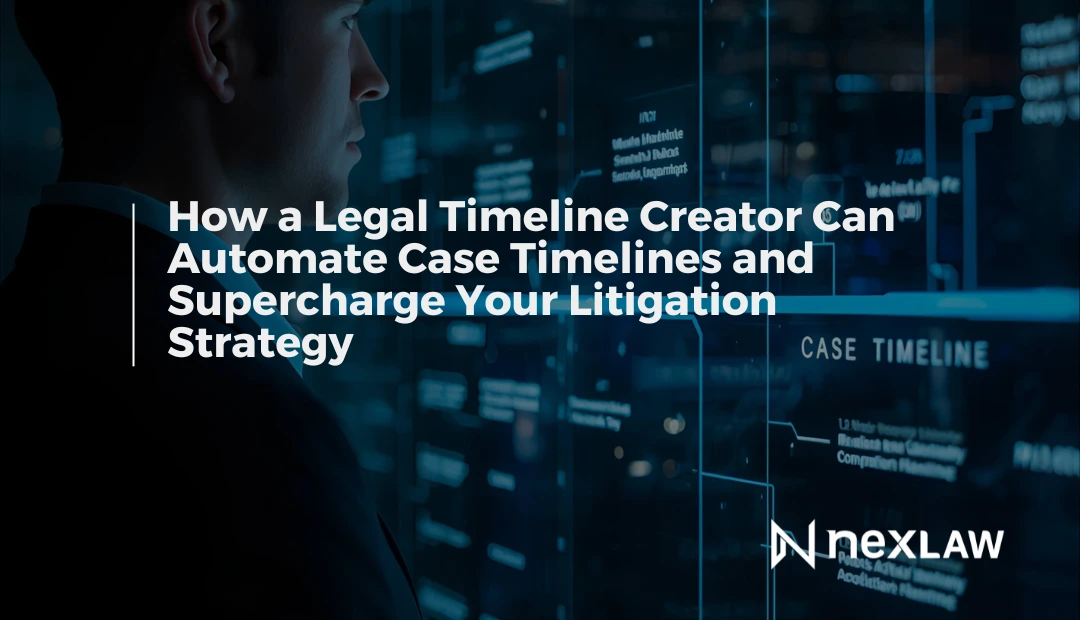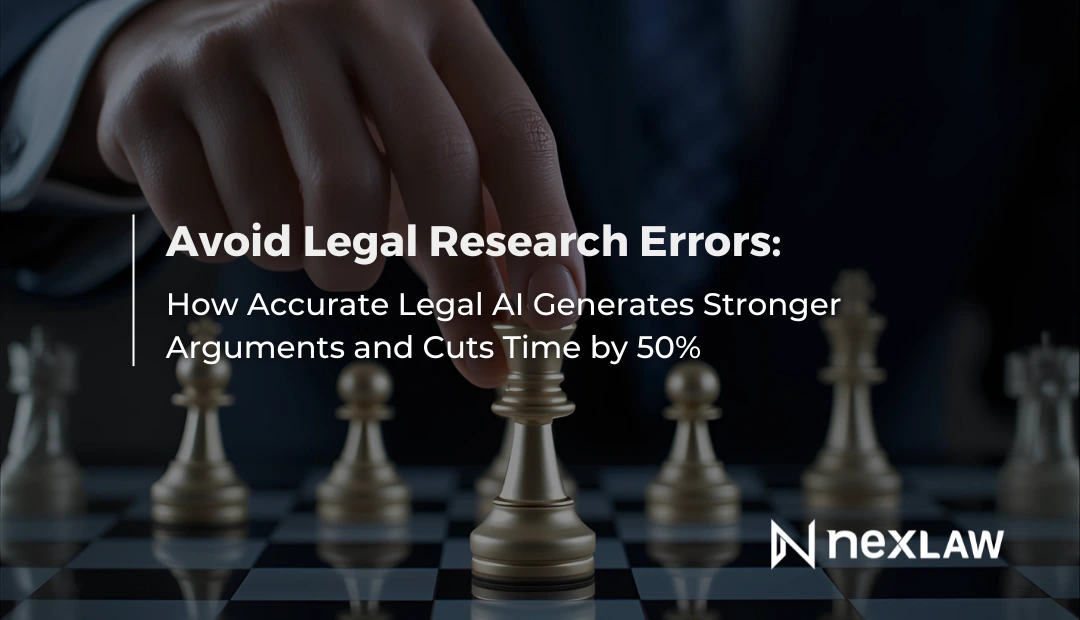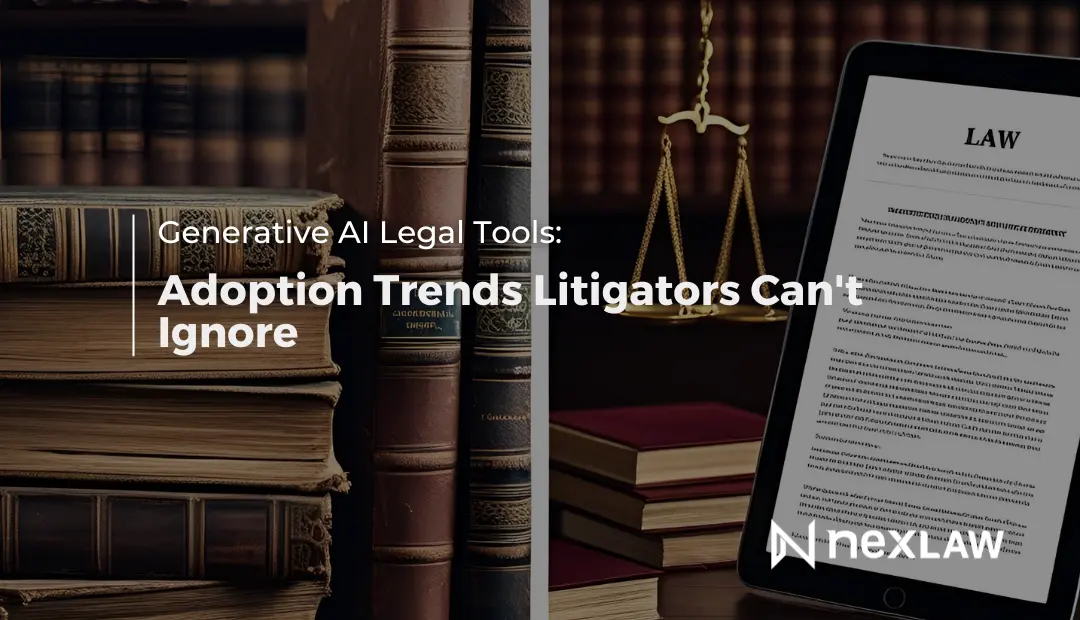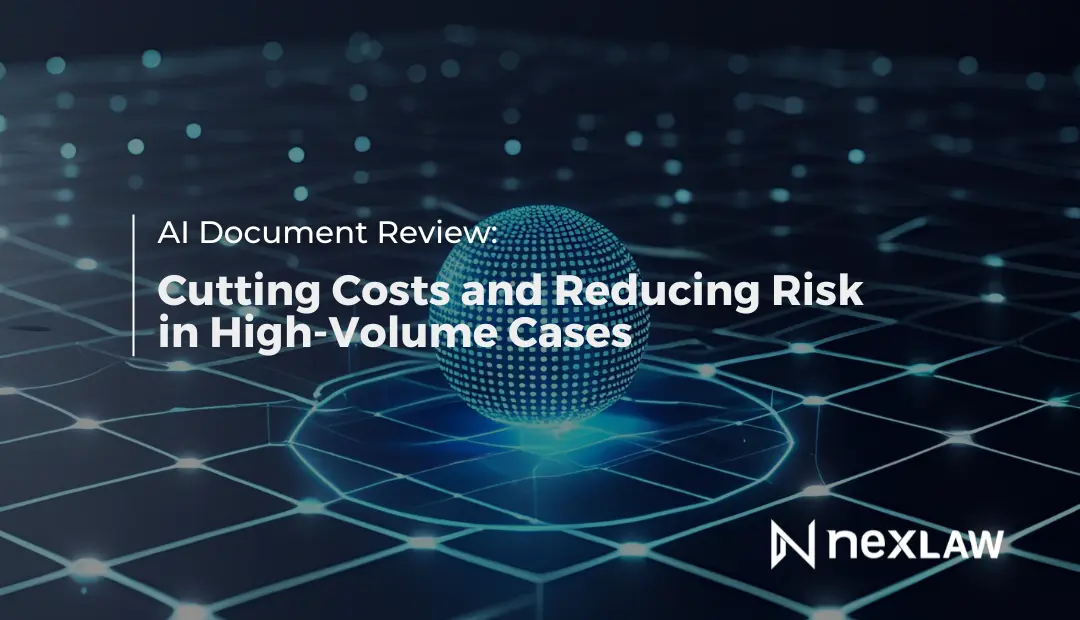From Filing to Verdict: How AI Is Transforming the Litigation Timeline
The traditional litigation timeline—stretching months or years from initial filing to final resolution—faces radical transformation through AI-powered optimization. Modern legal technology compresses traditional timelines while enhancing analytical depth, enabling attorneys to navigate complex litigation more efficiently than ever before.
Unlock Legal Insights Instantly!
Traditional Timeline Challenges
Historically, litigation workflows rely on sequential processes that create inherent delays and inefficiencies. Traditional case progression involves weeks for initial case assessment, months for discovery phase document review, time-consuming motion practice, extensive manual trial preparation, and prolonged settlement negotiations without data-driven insights.
These traditional approaches often extend litigation timelines unnecessarily while increasing costs and reducing strategic effectiveness. AI transformation addresses each phase systematically, creating cumulative efficiency gains throughout litigation lifecycles.
AI-Accelerated Case Inception and Assessment
The litigation timeline transformation begins at case inception, where AI platforms enable comprehensive case assessment within hours rather than weeks. Early case assessment plays a crucial role in determining a case’s strengths and weaknesses, formulating strategic legal processes, and deciding whether to pursue settlement, negotiation, or complex litigation.
AI predictive analytics can process and cross-reference text-based legal documents much faster than humans, gaining statistically significant insights and potentially predicting future outcomes within minutes. This acceleration enables immediate strategic decision-making that optimizes resource allocation from litigation commencement.
NexLaw’s case assessment platform provides instantaneous analysis that surpasses traditional research methods. Our algorithms examine case characteristics, judicial assignment factors, and opposing counsel analytics simultaneously, delivering comprehensive strategic insights that traditionally required weeks to develop.
Discovery Revolution: From Months to Days
Discovery represents the most dramatic timeline transformation through AI implementation. Traditional discovery processes require months of manual document review, analysis, and organization. AI-powered discovery reduces these timelines to days while improving analytical accuracy and completeness.
Automated Document Review: AI systems can now scan, analyze, and extract key clauses from complex documents within minutes—tasks that previously took legal professionals hours or even days. This capability enables comprehensive discovery analysis while maintaining quality standards.
Pattern Recognition: Advanced algorithms identify relevant document patterns and relationships automatically, eliminating manual sorting and categorization that consume substantial time resources.
Intelligent Organization: AI platforms create logical document hierarchies and chronologies automatically, providing organized discovery materials that facilitate strategic analysis and trial preparation.
E-Discovery, the process of identifying, collecting, and analyzing legal documents for litigation, is now AI-driven. AI tools can scan vast amounts of digital data, detecting relevant evidence faster than human reviewers, ensuring greater accuracy and efficiency in compliance management.
Motion Practice and Brief Preparation Acceleration
AI transformation extends to motion practice and brief preparation, traditionally time-intensive processes requiring extensive research and writing. Modern AI platforms automate significant portions of these workflows while maintaining quality and persuasive effectiveness.
Automated Legal Research: AI can help lawyers quickly produce initial drafts of motions, legal briefs, contracts, and settlement agreements, which in the past have been time intensive. Advanced platforms identify relevant precedents, analyze judicial preferences, and suggest strategic arguments within minutes.
Brief Analysis and Optimization: AI-powered brief analysis reviews legal documents in seconds, checks citations, and provides suggestions to improve drafts or responses. This capability enables iterative brief refinement that improves persuasive effectiveness while reducing preparation time.
Strategic Timing Optimization: Analytics platforms identify optimal filing schedules based on judicial calendar patterns and decision-making rhythms, enabling strategic timing that maximizes motion success probability.
NexLaw’s motion practice acceleration provides comprehensive brief development support that maintains quality while dramatically reducing preparation timelines.
Trial Preparation Timeline Compression
Trial preparation traditionally requires months of document organization, witness preparation, and strategic planning. AI platforms compress these timelines while enhancing preparation quality through comprehensive analytical support.
Automated Case Chronologies: AI systems review and build chronologies of parties’ documents automatically, providing organized timelines that facilitate strategic analysis and presentation development.
Witness Analysis: Advanced platforms analyze witness statements and deposition transcripts to identify patterns that might indicate credibility issues, enabling focused preparation strategies.
Evidence Organization: AI platforms organize case materials in chronological order and identify where evidence might be missing, providing comprehensive trial preparation support.
Jury Analytics: Predictive models analyze jury composition factors and historical verdict patterns to inform voir dire strategy and argument development.
Settlement Timeline Optimization
AI transformation significantly accelerates settlement negotiation through data-driven insight that enable efficient resolution discussions. Traditional settlement negotiations often extend for months due to information asymmetries and strategic positioning uncertainties.
Valuation Analytics: Predictive models provide objective settlement valuations based on historical data analysis, enabling realistic expectation setting and efficient negotiation frameworks.
Timing Optimization: Analytics identify optimal settlement timing based on case development patterns and opposing counsel historical behavior.
Strategic Intelligence: Comprehensive opponent analysis reveals settlement preferences and historical patterns that inform negotiation strategies.
During negotiations, predictive analytics offer tactical advantages. Legal professionals can enter negotiations with a robust understanding of potential case results, empowering them to push for settlements that serve client interests while reducing negotiation cycles.
NexLaw’s Comprehensive Timeline Optimization
NexLaw’s integrated platform provides end-to-end timeline optimization that surpasses competing solutions through comprehensive workflow integration. While competitors offer point solutions for specific litigation phases, NexLaw delivers unified timeline management across complete litigation lifecycles.
Our platform’s unique advantages include integrated workflow management, predictive timeline modeling, automated coordination, and client communication integration that maintains transparency while reducing administrative overhead.
Measuring Timeline Impact
Organizations implementing comprehensive AI platforms report dramatic timeline improvements across litigation phases:
- Case Assessment: 85% reduction in initial analysis time
- Discovery: 70% reduction in document review cycles
- Motion Practice: 60% reduction in brief preparation time
- Trial Preparation: 55% reduction in organization and analysis time
- Settlement: 45% reduction in negotiation cycle length
These improvements translate into substantial cost savings and enhanced client satisfaction through accelerated case resolution.
Future Timeline Evolution
As AI capabilities continue advancing, litigation timeline optimization will become increasingly sophisticated. Emerging developments include autonomous case management systems that optimize timelines dynamically and predictive scheduling that anticipates and prevents timeline disruptions.
Early adopters of comprehensive timeline optimization establish sustainable competitive advantages that compound as AI capabilities expand. Firms implementing advanced platforms position themselves for continued timeline improvement while building technological foundations for future innovations.
Transform Your Litigation Timeline
Compressed timelines aren’t just efficient, they’re a strategic advantage. AI-powered timeline optimization helps firms move faster, reduce costs, and improve outcomes across every stage of litigation.
NexLawAI delivers intelligent timeline management with:
- ChronoVault – Automatically generates and updates dynamic case timelines based on filings, facts, and deadlines
- NeXaAI Assistant – Links key case data to events, helping teams surface critical facts at the right time
- TrialPrep – Aligns trial strategy with evolving timelines, reducing prep delays and last-minute surprises
Book a Demo – See how NexLaw accelerates litigation from intake to verdict
Explore Plans – Includes a free 3-day trial to experience timeline optimization in action
GET 15% OFF for annual plans using promo code: ANNIV15MONTHLY or ANNIV15ANNUALY valid until August 31, 2025.
